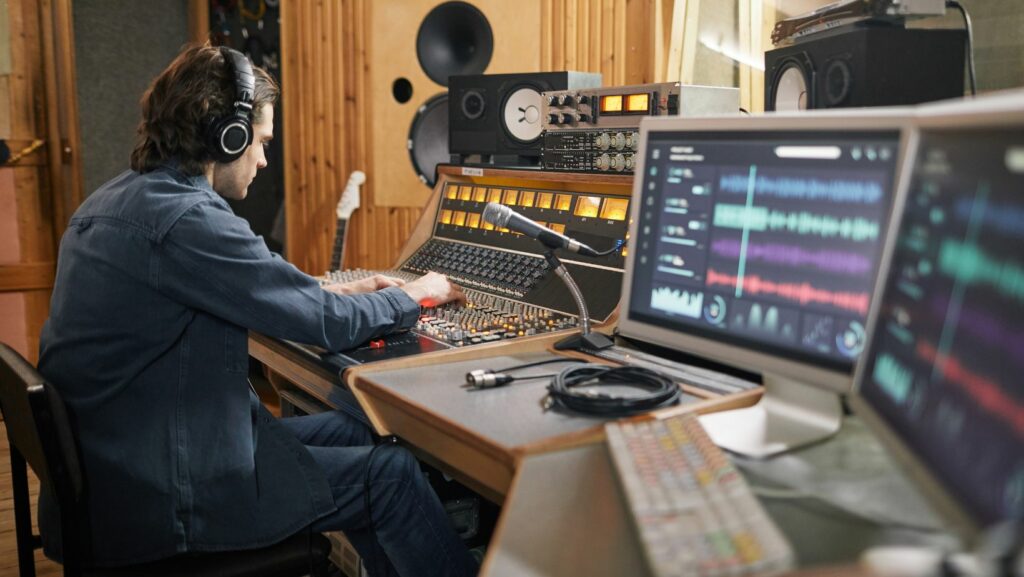Greatest Film Composers
Greatest Film Composers have profoundly impacted film music, establishing foundational techniques and styles that continue to influence the industry. Among these pioneers, Max Steiner and Erich Wolfgang Korngold stand out for their revolutionary contributions. Max Steiner, often called the “father of film music,” revolutionized the industry with his detailed and expressive scores.  Born in 1888, Steiner composed for over 300 films during his career, setting new standards for orchestral film scoring. His work on “King Kong” (1933) introduced the now-common technique of synchronizing music with on-screen action, enhancing emotional impact. Steiner’s ability to weave leitmotifs, recurring musical themes associated with specific characters or situations, became a staple in film music, influencing countless Greatest Film Composers who followed.
Born in 1888, Steiner composed for over 300 films during his career, setting new standards for orchestral film scoring. His work on “King Kong” (1933) introduced the now-common technique of synchronizing music with on-screen action, enhancing emotional impact. Steiner’s ability to weave leitmotifs, recurring musical themes associated with specific characters or situations, became a staple in film music, influencing countless Greatest Film Composers who followed.
Erich Wolfgang Korngold, a prodigious talent from Austria, significantly shaped early Hollywood film scoring. Fleeing the rise of the Nazi regime, Korngold brought his classical training to the US, scoring 18 films between 1935 and 1947. His work on “The Adventures of Robin Hood” (1938) earned him an Academy Award, showcasing his lush orchestral style and complex harmonies. Korngold’s cinematic approach often resembled operatic structures, blending intricate melodies with rich orchestrations, elevating the narrative depth of the films he scored and setting a high bar for future composers.
Mid-20th Century Icons
The mid-20th century saw the rise of iconic film Greatest Film Composers who profoundly influenced cinematic music. Two standout figures from this era are Bernard Herrmann and Ennio Morricone. Bernard Herrmann redefined film scoring with his innovative and memorable compositions. Collaborating with director Alfred Hitchcock, Herrmann produced the spine-chilling score for “Psycho” (1960).  Herrmann’s use of strings in the famous shower scene created an unforgettable tension. Additionally, his work on “Vertigo” (1958) and “North by Northwest” (1959) showcased his ability to blend drama and suspense seamlessly. Herrmann’s distinct style and experimentation with orchestral textures made him a crucial figure in film music.
Herrmann’s use of strings in the famous shower scene created an unforgettable tension. Additionally, his work on “Vertigo” (1958) and “North by Northwest” (1959) showcased his ability to blend drama and suspense seamlessly. Herrmann’s distinct style and experimentation with orchestral textures made him a crucial figure in film music.
Ennio Morricone, an Italian composer, revolutionized film music with his eclectic style. Known for his work on Sergio Leone’s “spaghetti Westerns,” Morricone’s score for “The Good, the Bad and the Ugly” (1966) remains iconic. His use of unconventional instruments like the ocarina and electric guitar created a unique soundscape. Beyond Westerns, Morricone’s versatility shines in films like “The Mission” (1986) and “Cinema Paradiso” (1988). His ability to evoke deep emotions through music has left a lasting mark on the industry.
Contemporary Maestros
Contemporary maestros have revolutionized film music with their innovative styles and diverse influences. They’ve shaped modern cinema through unforgettable scores and cutting-edge techniques. John Williams stands as one of the most celebrated contemporary composers. He’s scored some of the most iconic films in history. Starting with “Jaws” (1975), his suspenseful theme set the benchmark for future film scores. His work on “Star Wars” (1977) introduced audiences to the grandeur of orchestral scores, redefining the genre. With multiple awards, including five Oscars, Williams’s compositions often feature leitmotifs that enhance character and narrative depth. Films like “E.T.” (1982) and “Harry Potter” (2001) showcase his versatility, blending whimsy with emotional gravity
Hans Zimmer merges traditional orchestral elements with electronic music, crafting a unique soundscape for each film. Rising to prominence with “Rain Man” (1988), he’s known for blending synthesizers with classical instruments. The score for “The Lion King” (1994) earned him an Academy Award, while his work on “Inception” (2010) demonstrated his innovative use of sound to create immersive environments. Zimmer’s collaborations with directors like Christopher Nolan, particularly on “The Dark Knight” (2008) and “Interstellar” (2014), illustrate his ability to adapt and push the boundaries of film music, making him a pivotal figure in contemporary cinema.
Greatest Film Composers have played an indispensable role in shaping the cinematic experience. From the pioneering efforts of Max Steiner and Erich Wolfgang Korngold to the innovative sounds of John Williams and Hans Zimmer, these maestros have elevated storytelling through their unforgettable scores. The evolution of film music has seen a rich blend of styles and techniques, from classical orchestration to electronic innovation. Emerging talents like Jóhann Jóhannsson and Hildur Guðnadóttir promise a vibrant future for film music, ensuring that the art form continues to evolve and captivate audiences worldwide.

